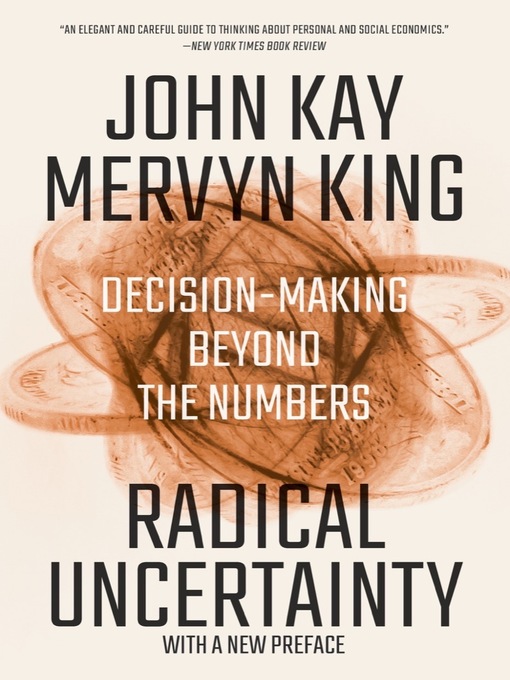Much economic advice is bogus quantification, warn two leading experts in this essential book, now with a preface on COVID-19. Invented numbers offer a false sense of security; we need instead robust narratives that give us the confidence to manage uncertainty.
"An elegant and careful guide to thinking about personal and social economics, especially in a time of uncertainty. The timing is impeccable." — Christine Kenneally, New York Times Book Review
Some uncertainties are resolvable. The insurance industry's actuarial tables and the gambler's roulette wheel both yield to the tools of probability theory. Most situations in life, however, involve a deeper kind of uncertainty, a radical uncertainty for which historical data provide no useful guidance to future outcomes. Radical uncertainty concerns events whose determinants are insufficiently understood for probabilities to be known or forecasting possible. Before President Barack Obama made the fateful decision to send in the Navy Seals, his advisers offered him wildly divergent estimates of the odds that Osama bin Laden would be in the Abbottabad compound. In 2000, no one—not least Steve Jobs—knew what a smartphone was; how could anyone have predicted how many would be sold in 2020? And financial advisers who confidently provide the information required in the standard retirement planning package—what will interest rates, the cost of living, and your state of health be in 2050?—demonstrate only that their advice is worthless.
The limits of certainty demonstrate the power of human judgment over artificial intelligence. In most critical decisions there can be no forecasts or probability distributions on which we might sensibly rely. Instead of inventing numbers to fill the gaps in our knowledge, we should adopt business, political, and personal strategies that will be robust to alternative futures and resilient to unpredictable events. Within the security of such a robust and resilient reference narrative, uncertainty can be embraced, because it is the source of creativity, excitement, and profit.



